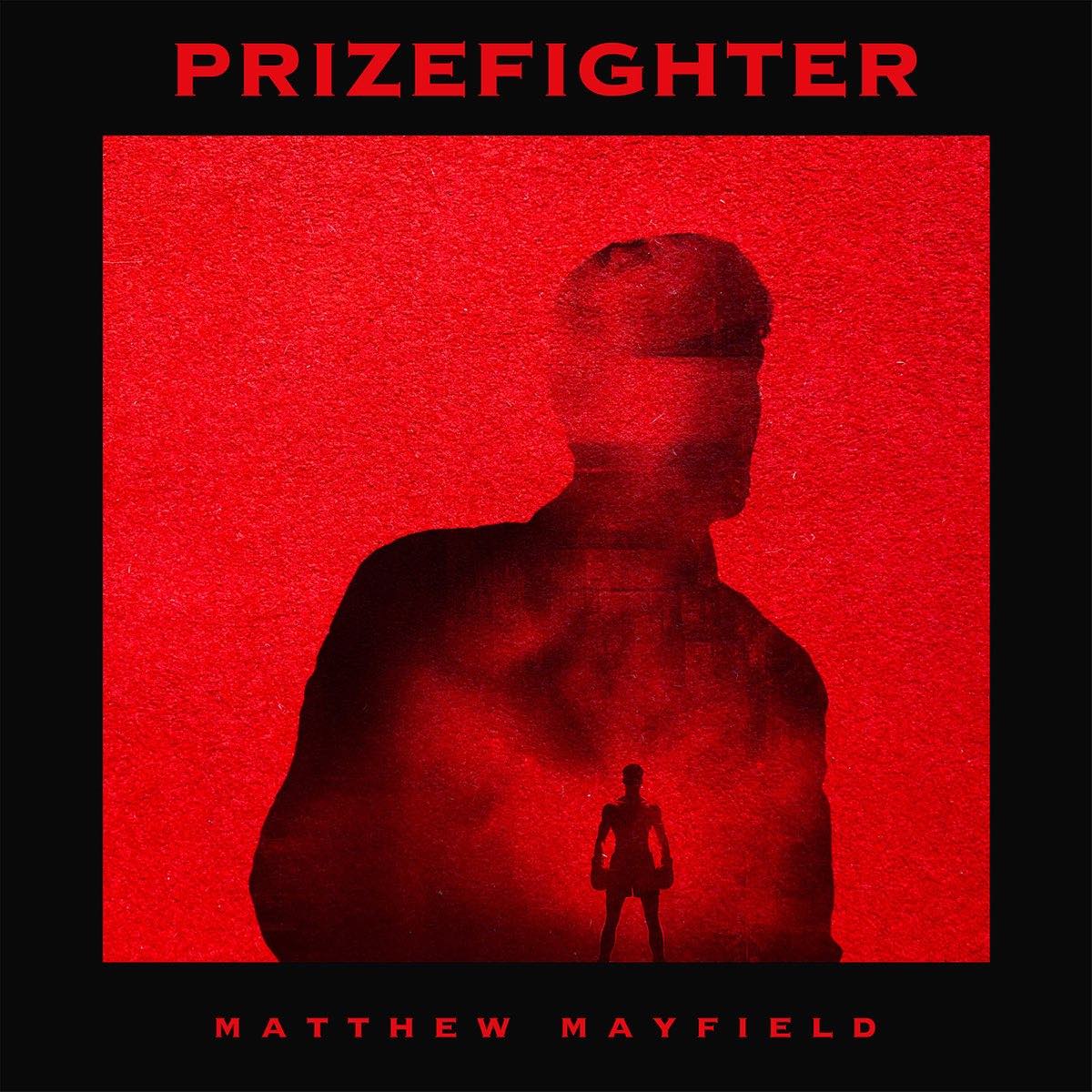Matthew Mayfield
Prizefighter
SELF-RELEASED
Matthew Mayfield has one of those voices that you don’t hear so much as you feel it. A deep, dark growl, it sounds like an eternity of heartbreak cascading down on you all at once. Yet broken as these songs (and the person singing them) may seem, there’s an undercurrent of resilience present, too—a deep desire to not give up, but to keep pushing through the pain to emerge on the other side, bruised and battered but alive—and feeling it.
To say, then, that Prizefighter is an intense journey is an understatement. Haunted by an abject loneliness, the record begins with the glowering “Mirror Lake,” an opener that starts tenderly and slowly before exploding in a blast of singalong anthemics. It’s a collage of opposing emotions that flow from despair to hope and back to despair again, but never truly succumbs to that desolation. It’s followed by the sublimely epic “Belle of the Ball,” a track with sweeping strings that’s tailor made to soundtrack the posthumous movie of your life. Similarly, “Undertow”—an exercise in stirring misery—and “Die in a Ghost Town”—an exercise in refuting that misery—are stark, powerful songs that straddle the line between singer-songwriter and full rock band.
That’s one of numerous battles fought by the Birmingham songwriter on these 12 songs. Whether it’s the tender vulnerability of “Rock n’ Roll Can’t Save Me,” the moody atmosphere of “The Crown,” or the creeping, crawling pain of closer “Never Leave You Behind”—which builds its sense of dread slowly until it becomes an entirely different song to the one it began as—there’s a constant push and pull throughout this record, a tug of war before light and dark, life and death, love and loss. It’s the sound of scars healing and strength gathering, of gritty determination to not let the bad thoughts win.
One of the most potent and poignant examples of that is on “Monsters,” a song about a shooting at a school in Nashville attended by some of Mayfield’s friends’ children. Much like the rest of this record, the song pits humanity against itself in order to expose the darkness that so often seems to lie at the heart of it. But it also serves as a reminder that it’s possible to rise above, to do more than just keep on keeping on. As Oscar Wilde once said, “We are all in the gutter, but some of us are looking at the stars.” That pretty much describes Prizefighter perfectly.







